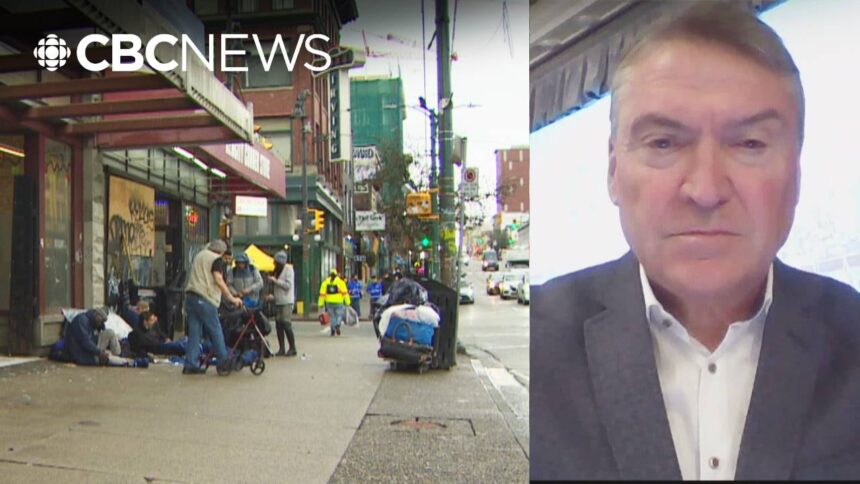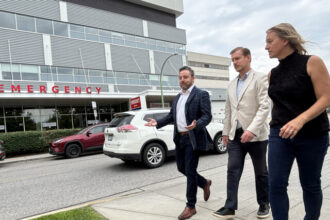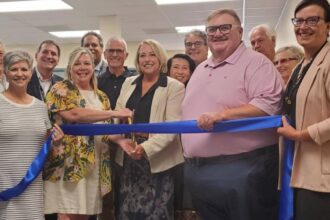As Kelowna grapples with an escalating mental health emergency, Mayor Tom Dyas has taken the unprecedented step of formally requesting immediate federal intervention. Standing before city council chambers Tuesday evening, his voice unwavering but urgent, Dyas declared what many residents have felt for months: the city’s mental health infrastructure has reached a breaking point.
“What we’re witnessing isn’t simply a challenge—it’s a full-blown crisis that demands action from every level of government,” Dyas told a packed audience of concerned citizens, healthcare professionals, and community advocates. “Our local resources are stretched beyond capacity, and without federal support, I fear the consequences will be devastating.”
The crisis manifests daily on Kelowna streets, where frontline workers report a 43% increase in mental health-related emergency calls over the past year. Interior Health Authority data indicates psychiatric bed occupancy has remained above 98% for nine consecutive months, forcing patients in acute distress to wait an average of 19 hours for admission—more than double the provincial standard.
Dr. Alanna Fitzpatrick, Chief of Psychiatric Services at Kelowna General Hospital, confirmed the severity of the situation in her testimony to council. “We’re operating in perpetual emergency mode. Our staff is exhausted, our facilities overwhelmed. The pandemic’s psychological aftershocks continue to reverberate through our community, particularly among young adults and seniors.”
The mayor’s appeal calls for a comprehensive federal response package, including emergency funding for community-based mental health services, expedited construction of a proposed crisis stabilization center, and deployment of specialized mental health professionals to augment local teams. Dyas emphasized that Kelowna’s experience reflects a national pattern requiring a coordinated approach.
“This isn’t unique to Kelowna—communities across Canada face similar challenges—but our particular combination of rapid population growth, housing pressures, and limited healthcare infrastructure has created a perfect storm,” explained Dyas. “We need Ottawa to recognize that mental health requires the same emergency response protocols as any other public health crisis.”
Local business leaders have added their voices to the call for action, citing economic impacts beyond the immediate human toll. Chamber of Commerce President Janice Romano noted that downtown businesses report declining customer traffic due to safety concerns, while employers struggle with absenteeism related to untreated mental health conditions among staff.
“The economic costs of inaction are substantial,” Romano stated. “Mental health isn’t just a healthcare issue—it affects our entire community’s vitality and prosperity.”
Community response has been overwhelmingly supportive of the mayor’s initiative. A petition launched by the Kelowna Mental Health Coalition gathered over 12,000 signatures in just four days, demonstrating widespread public concern. Grassroots organizations have mobilized to fill service gaps, but volunteer coordinator Michael Chen emphasized the limitations of such efforts.
“We’re doing everything possible with limited resources, but community volunteers cannot replace professional care systems,” Chen said. “Federal support isn’t just wanted—it’s desperately needed.”
The federal government’s response remains pending, though Minister of Mental Health and Addictions Carolyn Bennett acknowledged receiving Kelowna’s formal request during a press conference in Ottawa yesterday. Bennett indicated that her office is “reviewing the situation with appropriate urgency” but stopped short of committing specific resources.
Provincial officials have expressed support for Kelowna’s appeal while defending existing mental health initiatives. Health Minister Adrian Dix pointed to recent increases in provincial funding but conceded that “extraordinary circumstances may require extraordinary measures, including federal partnership.”
As stakeholders await federal response, Mayor Dyas has announced the formation of a Mental Health Emergency Task Force to coordinate local efforts and prepare implementation strategies should federal assistance materialize. The task force will include representatives from healthcare, law enforcement, social services, and affected community members.
“While we advocate for the help we need, we won’t stand idle,” Dyas assured residents. “This crisis demands immediate action, innovative thinking, and unwavering commitment from every sector of our community.”
As Kelowna confronts this defining challenge, the question remains: Will federal authorities recognize that local mental health crises constitute national emergencies deserving of coordinated response, or will communities like Kelowna be left to manage unprecedented challenges with limited resources? The answer may establish precedent for how Canada addresses the growing mental health burden affecting communities nationwide.














